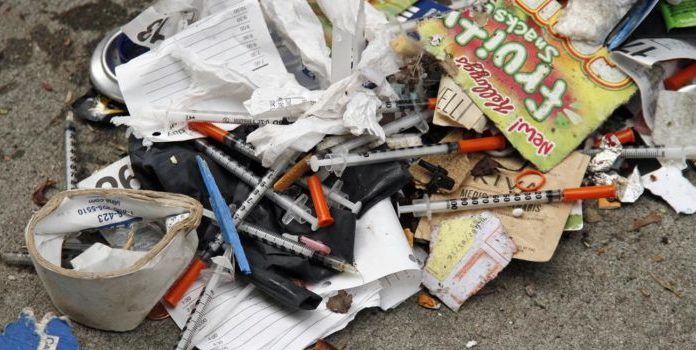(John McCann, Headline USA) Oregon’s decriminalization of hard drugs appears to be backfiring in horrendous and deadly fashion.
When Oregonian voters approved Ballot Measure 110 in 2020, the hope was that decriminalization would encourage addicts to seek help. Unfortunately, that does not seem to be the case.
Measure 110 was the first of its kind in the U.S. and stipulated that using or possessing hard drugs would no longer be classed as a felony or misdemeanor crime in the state of Oregon, according to Blaze Media. The maximum penalty for carrying these hard drugs would be a $100 fine. This fine could be waived if the perpetrator called a public hotline for a free medical assessment.
Drugs such as heroin, cocaine and methamphetamines have fallen under this “hard” categorization.
The Measure also allowed for $300 million that was to be allocated to state public health resources. Only $40 million of that money has been dispersed. Despite these apparent good intentions, Measure 110 seems to have had the opposite effect and overdose rates have skyrocketed.
As stated by Republican state official Lily Morgan, “In my community, [there has been] a 700% increase in overdoses and a 120% increase in deaths.”
Oregon Secretary of State Shemia Fagan lamented that “When the voters of Oregon passed Measure 110, we did so because it was a change of policy in Oregon to improve the lives of people, to improve our communities, and in the years since, we haven’t seen that play out.”
Oregon’s behavioral health director, Steve Allen, acknowledged that the increase of overdoses and deaths has been “dramatic.” Although, he attributed this to an influx of meth laced with fentanyl.
Allen argued that if the state’s public health resources received more funds and support, then the problem could be successfully mitigated and brought under control.
He concluded by saying, “Getting these resources out to the community is incredibly important — not just the harm reduction resources, but people who can support folks who are at risk for overdose.”
It remains to be seen whether throwing more money at the problem will solve this public health crisis. But Oregon’s experiment with total drug decriminalization may prove to be a cautionary tale for other states across the union.

